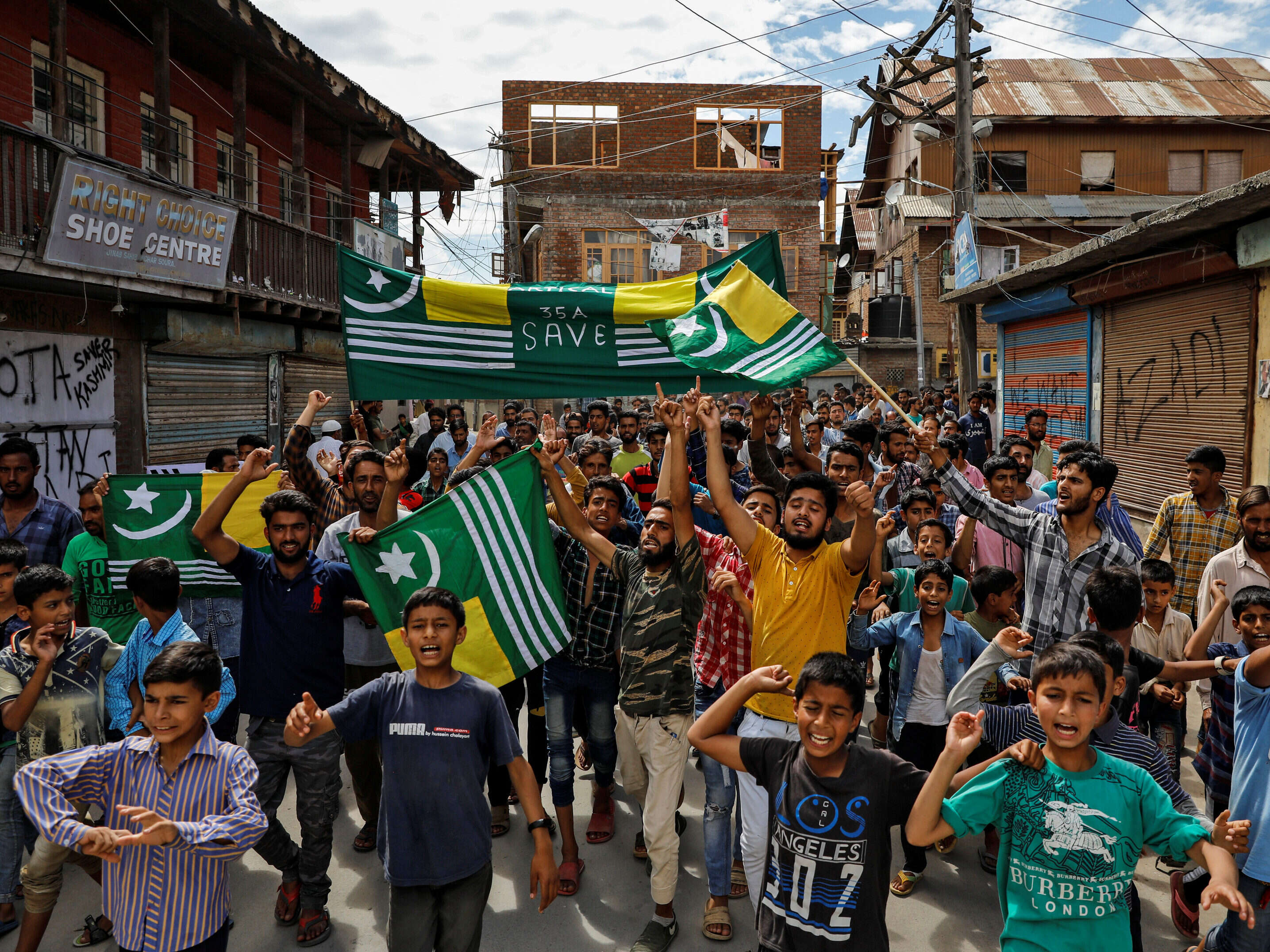
The BBC World Service has extended its shortwave radio broadcasts in the Indian-controlled region of Kashmir after almost two weeks of a media blackout imposed by India.
Kashmir is now in the 12th day of a communications shutdown and security lockdown brought into place just before the Indian Government stripped the region of its statehood and special constitutional provisions.
The decision to revoke Article 370 of the Indian constitution and downgrade the state of Jammu and Kashmir into two union territories has been met with daily protests.
The BBC said the communications shutdown, which includes internet access and mobile and landline phone services, has left people in the region with very few options for accessing news.
But BBC news services are still available through shortwave radio transmissions in English, Urdu, Hindi, Dari and Pashto.
BBC World Service director Jamie Angus said: “The provision of independent and trusted news in places of conflict and tension is one of the core purposes of the World Service.
“Given the shutdown of digital services and phone lines in the region, it’s right for us to try and increase the provision of news on our shortwave radio services.
“Audiences in both India and Pakistan trust the BBC to speak with an independent voice, and we know that our reporting through several moments of crisis this year has been popular and valued by audiences who turn to us when tensions are highest.”
The BBC said BBC News Hindi radio output will be extended from 30 minutes to one hour each evening from tonight.
BBC News Urdu will launch a daily 15-minute lunchtime programme with news out of Kashmir and a global news round-up for audiences in the region.
BBC World Service English broadcasts will also be extended by an hour each morning, and start an hour earlier in the evening.
The BBC was forced to issue a statement earlier this week defending its coverage of a protest in the city of Srinagar which the Indian government claimed never took place.
The BBC broadcast footage of police opening fire and using tear gas to disperse a crowd of thousands last Friday.
https://twitter.com/NicolaCareem/status/1160107113890426880
The Indian Government reportedly accused the BBC of fabricating the footage, claiming there had only been “stray protests” in the area with no more than 20 people present, and that police had not fired a single bullet in days.
The BBC said in a statement on Sunday: “The BBC stands by its journalism and we strongly refute any claims that we have misrepresented events in Kashmir.
“We are covering the situation impartially and accurately. Like other broadcasters we are currently operating under severe restrictions in Kashmir but we will continue to report what is happening.”
The BBC’s latest global audience figures, published in June, show India is now the top overseas market for BBC News, now reaching an audience of 50m each week in nine languages.
Picture: Reuters/Danish Siddiqui
Email pged@pressgazette.co.uk to point out mistakes, provide story tips or send in a letter for publication on our "Letters Page" blog
